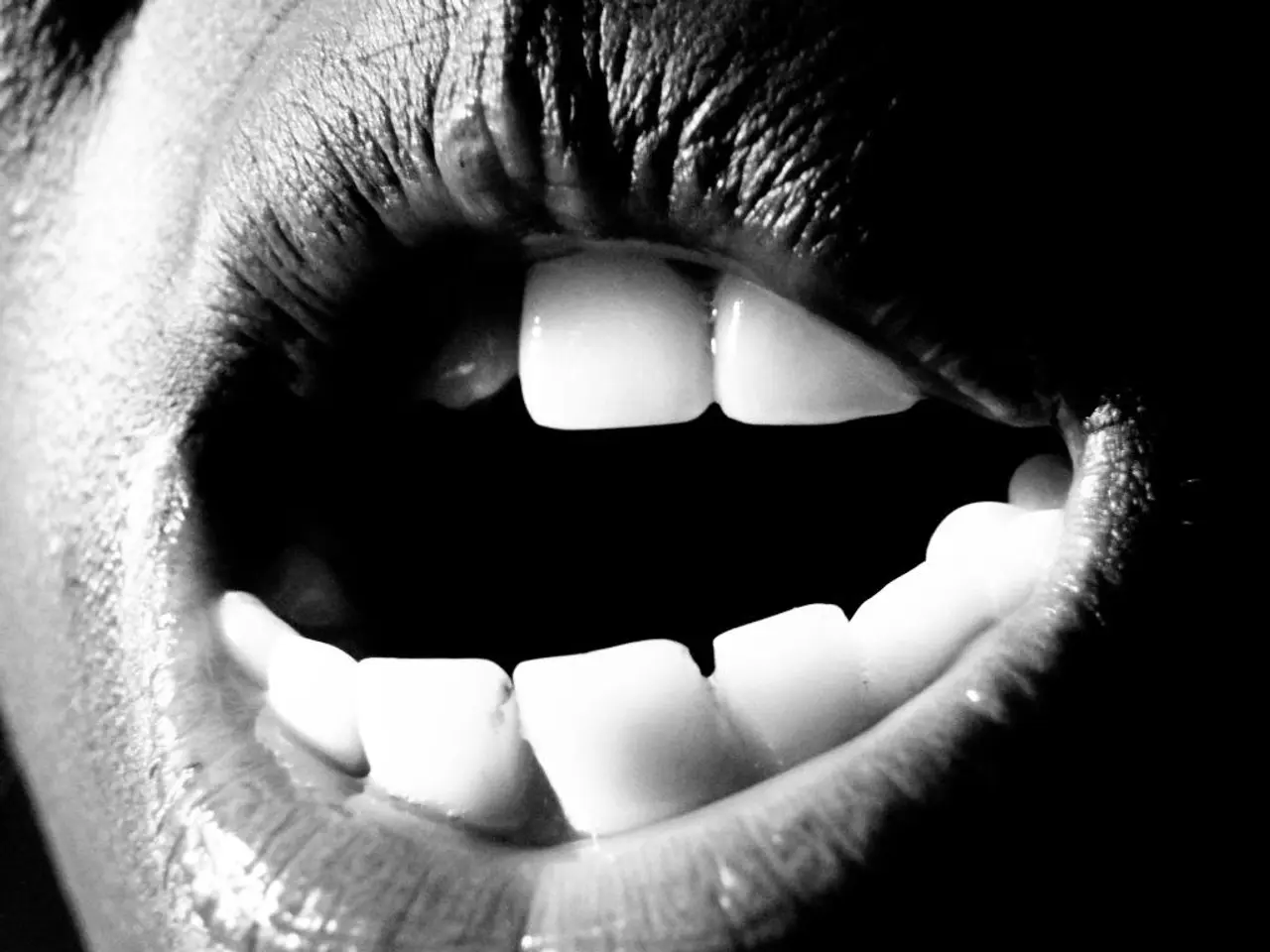Mouth palate irregularities: 12 potential reasons identified
A bump or sore on the roof of the mouth can be a cause for concern, but understanding its potential origins can help alleviate worry. This article explores common causes, symptoms, and when to seek medical advice.
Common causes of bumps and sores on the roof of the mouth include minor irritations or injuries, such as acidic foods, accidental bites, or dental appliances like braces or dentures. Another common culprit is canker sores (aphthous ulcers), which often begin as a tingling sensation before developing into painful, small, white or reddish sores. These can be triggered by injury, food sensitivities, stress, hormonal changes, or nutritional deficiencies like B vitamins or iron.
More serious conditions, such as herpes simplex virus (HSV-1) infection, gingivostomatitis, and oral cancers, may also present as bumps or sores on the roof of the mouth. HSV-1 infection can cause painful blisters or cold sores on the lips or inside the mouth, including the roof. Early symptoms include tingling or itching, followed by clusters of fluid-filled blisters, swelling, redness, and sometimes fever or body aches. Gingivostomatitis, often caused by HSV-1, is characterized by multiple small blisters that break open into painful sores, inflamed and bleeding gums, ulcers around the lips and mouth, swollen lymph nodes, fever, mouth pain, and sometimes bad breath.
Additional symptoms that might indicate a more serious condition include persistent or worsening pain or swelling, multiple or spreading sores, bleeding gums or sores that do not heal, swollen, sore lymph nodes in the neck, fever lasting several days, difficulty eating, drinking, or swallowing due to pain, signs of dehydration or irritability, especially in children, and accompanying systemic symptoms such as headaches or body aches.
If these symptoms are present, or if the sore or bump does not resolve within a couple of weeks, it is advisable to seek medical or dental evaluation to rule out infections like herpes, bacterial infections, or other serious conditions, including oral cancers.
Some conditions, such as oral squamous papilloma, mucoceles, hyperdontia, Epstein pearls, and torus palatinus, may cause bumps on the roof of the mouth but are generally benign and do not require medical intervention unless they cause discomfort or affect a person's ability to eat, drink, or talk.
In conclusion, while bumps and sores on the roof of the mouth can be concerning, understanding their potential origins can help alleviate worry. If symptoms persist or worsen, it is essential to seek medical or dental advice to ensure a proper diagnosis and treatment.
- Predictive analysis in health-and-wellness may help identify the causes of bumps and sores on the roof of the mouth, assisting in earlier detection of potentially serious conditions like oral cancers.
- The field of science continually works on developing predictive models to aid in oral health, potentially reducing the worry associated with discovering an unusual growth.
- While dry mouth can exacerbate oral herpes symptoms, it's also a symptom of other health issues like asthma, diabetes, and Sjogren's syndrome.
- Certain conditions, such as multiple sclerosis, Crohn's disease, psoriasis, or macular degeneration, might have oral manifestations like jaw pain, mouth sores, or dry mouth.
- In some instances, the presence of a bump or sore on the roof of the mouth could be a symptom of a more systemic disease, such as mononucleosis, which causes fatigue, depression, and swollen lymph nodes.
- Although bumps from oral squamous papilloma, mucoceles, hyperdontia, Epstein pearls, or torus palatinus are generally benign, they might affect a person's ability to eat, drink, or talk, necessitating intervention.
- Science and health-and-wellness research are working to design oral care products that offer relief for symptoms like dry mouth associated with various diseases, like degenerative conditions or depression.
- AQ (Air Quality) indices can influence oral health, as poor air quality has been linked to an increased risk of oral cancers and non-digestive ulcers.
- As one seeks medical advice for a bump or sore on the roof of the mouth, it's also crucial to monitor overall health and address any accompanying symptoms indicating potential systemic issues or mental health concerns, like depression or bipolar disorder.




